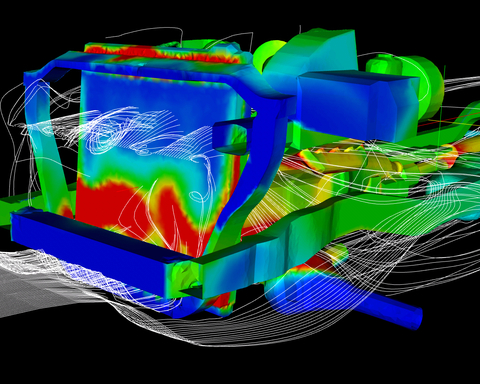ANSYS addresses today two key issues in the supply chain: interoperability and the exchange of data. The challenge raised by these issues is the difficulty to share design models between different thermal simulation toolsets.
The software specialist responds to this challenge by developing an open model format. According to the specialist, it would promote interoperability and ease the exchange of data throughout the supply chain – therefore saving time and reducing import errors.

The thermal simulation case
In the electronics industry for instance, suppliers often support the major tools with their component models in order to enable larger system modeling and a common format for data exchange. Thanks to the standard format, suppliers can create a single compact model file that presents its thermal characteristics and that work with any simulation software tool that adheres to the standard and will save users valuable time and reduce errors.
Intel is one of the companies that already experienced the new format. According to David Ochoa, data center platform applications engineer, Intel, “thermal engineers at Intel support this collaborative effort to enable a direct method of tool interoperability and multi-disciplinary simulation. Productivity is expected to increase with automation and custom tools that will be directly compatible with commercial software via this standard. Intel’s customer support for thermal simulation will be simplified and streamlined since we can provide customers a single format rather than spend time developing, validating and supporting multiple types.”
For further information about 3D Printing, follow us on our social networks and subscribe to our newsletter!
Would you like to be featured in the next issue of our digital magazine? Send us an email at contact@3dadept.com
//pagead2.googlesyndication.com/pagead/js/adsbygoogle.js
(adsbygoogle = window.adsbygoogle || []).push({});





